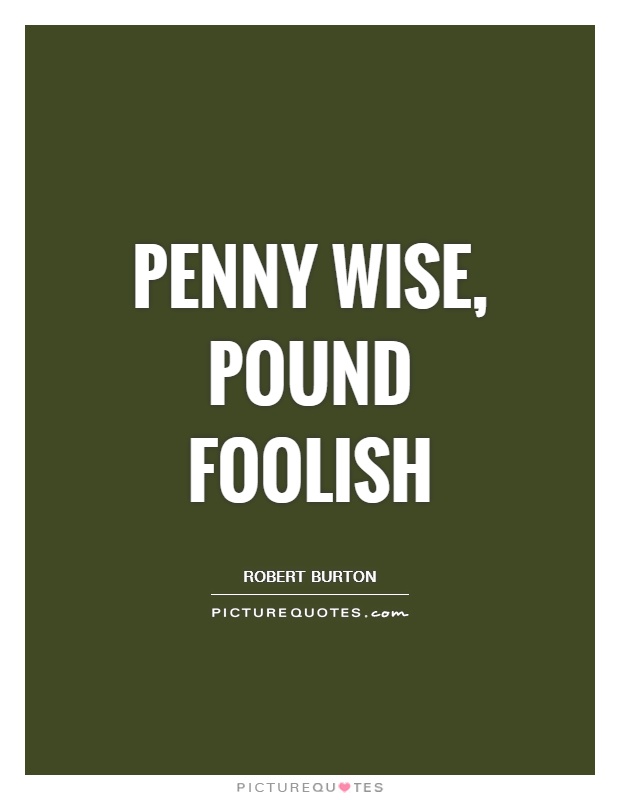Penny wise, pound foolish

Penny wise, pound foolish
The proverb "penny wise, pound foolish" is a cautionary tale about the dangers of focusing too much on small savings while ignoring larger expenses or investments. It is a reminder that sometimes being overly frugal in the short term can lead to greater financial losses in the long run.The origins of this proverb can be traced back to 17th century England, where the terms "penny" and "pound" referred to the smallest and largest denominations of currency at the time. The idea behind the proverb is that while it may seem prudent to save pennies here and there, it is ultimately more important to make wise decisions when it comes to larger sums of money.
One common example of being penny wise and pound foolish is cutting corners on maintenance or repairs for a home or vehicle. While it may save money in the short term to delay fixing a leaky roof or replacing worn-out brakes, the eventual cost of more extensive damage or repairs can far outweigh the initial savings. In this case, being overly focused on saving pennies can lead to much larger financial losses down the road.
Another example of this proverb in action is when individuals prioritize saving money on cheap, low-quality products or services without considering the long-term consequences. For instance, buying a cheaply made appliance that breaks down after a few months may seem like a good deal at the time, but the cost of replacing it multiple times can add up to more than investing in a higher-quality, longer-lasting option from the start.












 Friendship Quotes
Friendship Quotes Love Quotes
Love Quotes Life Quotes
Life Quotes Funny Quotes
Funny Quotes Motivational Quotes
Motivational Quotes Inspirational Quotes
Inspirational Quotes